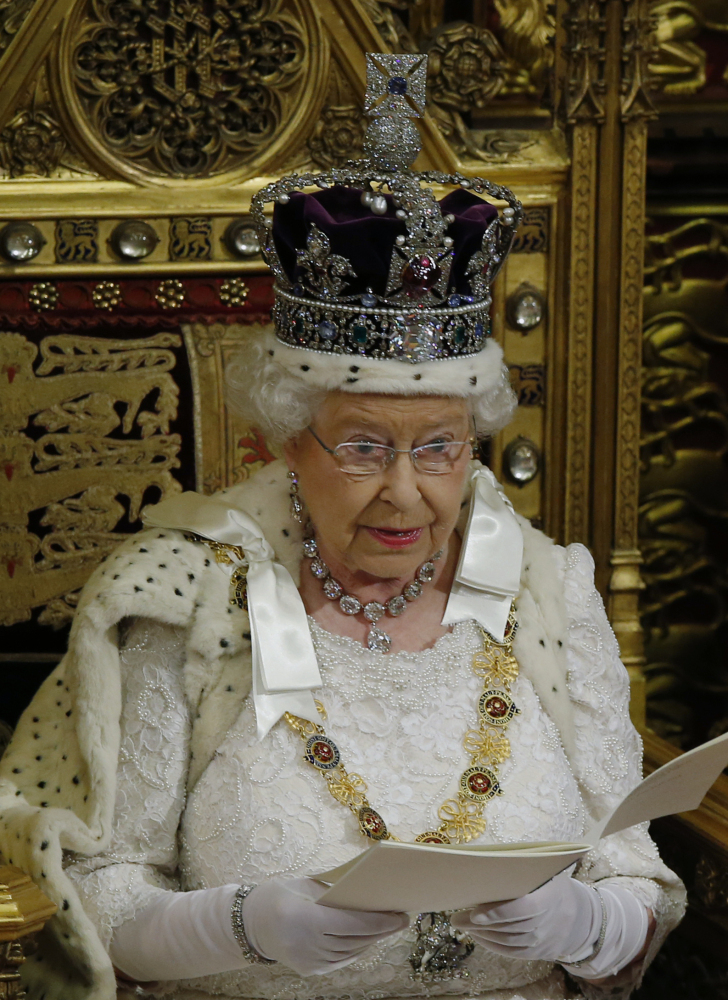LONDON — Pomp met politics as Queen Elizabeth II donned a diamond-studded crown Wednesday to read out laws planned by Britain’s new government, including more autonomy for Scotland and a referendum on whether to remain in the European Union.
It was the 62nd time the 89-year-old monarch has delivered the annual Queen’s Speech, but this year’s proposals have especially profound implications for the future of the United Kingdom she heads.
Prime Minister David Cameron’s Conservative administration said it would “renegotiate the United Kingdom’s relationship with the European Union” and hold an in-or-out referendum on membership by the end of 2017.
At home, it promised a “strong and lasting constitutional settlement” with major new powers for Scotland and – to a lesser extent – Wales.
The speech, delivered by the queen but written by the government, is the centerpiece of the ceremonial State Opening of Parliament. It follows a May 7 election that unexpectedly gave Cameron’s center-right Conservatives a parliamentary majority – and with it the power to implement a political agenda without coalition compromises.
“This is the Queen’s Speech for working people, from a one-nation government that will bring our country together,” Cameron told lawmakers in the House of Commons after the queen’s address. He vowed to create “a country that backs those who work hard and do the right thing.”
The speech promised laws to cut red tape for small businesses and freeze income and sales tax rates until 2020. There was also a right-to-buy plan to help thousands of tenants become homeowners.
The unemployed face a lower cap on benefits, while the government plans to make it harder for unionized workers to strike and to introduce new controls on immigration.
Cameron’s “one nation” may well have looser bonds. Scotland is getting more powers to raise and spend taxes, fulfilling a promise made by Cameron before last year’s Scottish independence referendum. Wales will also gain more autonomy, and there was a promise to reduce the say of Scottish lawmakers over policies that affect only England and Wales.
Details of that plan, known as “English votes for English laws,” are likely to prove contentious – one of several bills the government may struggle to pass with its majority of 12 seats in the 650-seat House of Commons.
Copy the Story LinkSend questions/comments to the editors.




Success. Please wait for the page to reload. If the page does not reload within 5 seconds, please refresh the page.
Enter your email and password to access comments.
Hi, to comment on stories you must . This profile is in addition to your subscription and website login.
Already have a commenting profile? .
Invalid username/password.
Please check your email to confirm and complete your registration.
Only subscribers are eligible to post comments. Please subscribe or login first for digital access. Here’s why.
Use the form below to reset your password. When you've submitted your account email, we will send an email with a reset code.